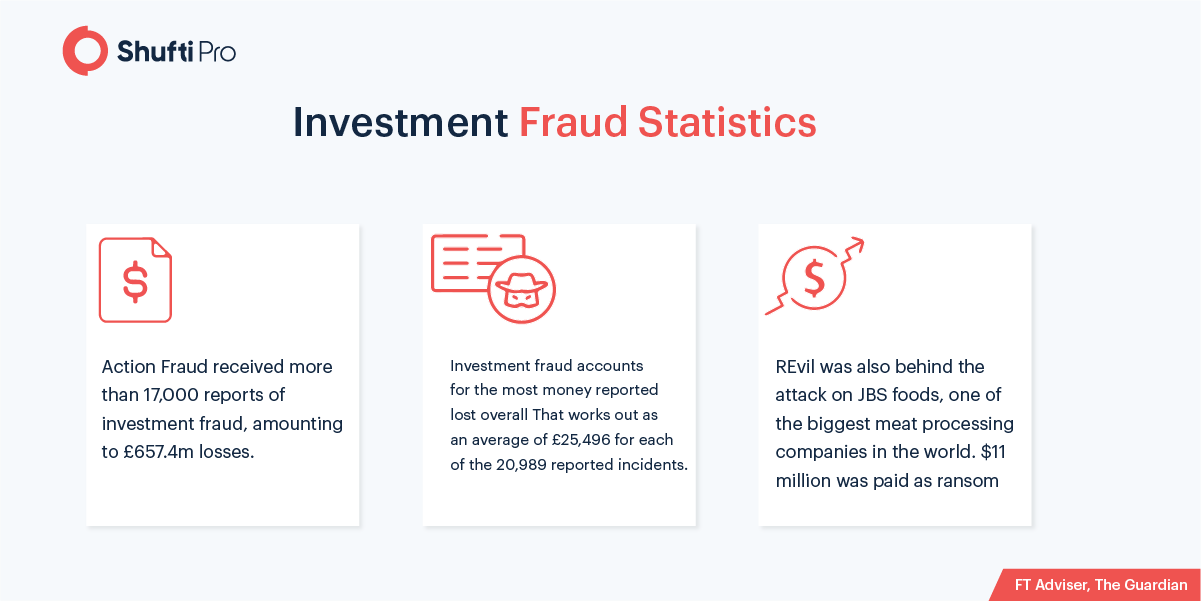Know Your Investor (KYI)- Ensuring Seamless Investor Onboarding for the Investment Industry

With global stock markets skyrocketing, the wealth, asset and investment sector is under growing regulatory oversight. Customer onboarding is considered one of the most crucial stages in the client lifecycle. It is the first point of interaction between the investment service providers and their customers. First impression determines the rest of the relationship and therefore holds strategic significance regarding individual and institutional customers. Thus, a seamless and user-oriented onboarding process can create advantages for businesses.
On another hand, the investment sector is also becoming the prime target of criminals. The businesses are in dire need to meet the regulatory obligation including anti-money laundering (AML), know your investor (KYI), and due diligence to manage the potential risk that may disrupt operations. Henceforth, the investment firms are drawing their attention towards emerging tech-powered identity verification solutions to overcome regulatory fines, as well as ensure legit client onboarding.
Insight over Investment industry [2022 update]
In 2021, the investment sector was experiencing heaps of challenges, as the result of covid-driven market volatility. Well, experts have made many predictions, yet in 2022 the uncertainty remains the same. However, the number of criminal activities is significantly rising as are financial transactions. There was a notable rise or about 42% in financial investment fraud the previous year, driven by a 59% increase in Ponzi schemes along with a 57% spike in bond sale scams. Due to this reason, the global regulatory framework is also getting more rigid, along with Financial Technology (FinTech) companies have also emerged with heaps of automated identity verification solutions being introduced in the market. These solutions are helping out investment firms and businesses to streamline their operation with regulatory compliance. Hence enabling them to curb investment frauds along with avoiding regulatory fines.

Fake Broker-Dealers Stole $50 Million Through an Online Investment Fraud Scheme Impersonating Legitimate Institutions
The regulatory bodies put behind the penetrator as it pleaded guilty in an online investment fraud scheme by broker-dealers who collectively stole around $50 million from 70 victims. The alleged entity and his group members sought money from the victims through various false websites, the fake websites were sophisticatedly designed to closely resemble the websites of the financial firms, making them look legit. But in reality, they do not even exist. In addition to this, fraudsters impersonated real FINRA broker-dealers and claimed to work for the financial institutions. Through this investment opportunities were provided to the victims, including certificates of deposit (CD) with higher return rates. However, according to the investigation, the investment schemes were advertised through Google and Bing search result ads using the keywords “best CD rate” and “heightened rate”. Furthermore, it was found out that the fake broker-dealers gained investors’ trust by using real names and logos of the financial firms. They also fooled victims by saying they are being regulated by financial watchdogs like the Financial Industry Regulatory Authority (FINRA), the Securities Investor Protection Corporation, the Federal Deposit Insurance Corporation, or New York Stock Exchange (NYSE). Nonetheless, the suspected criminals hide their true identities through tactics like encrypted applications, prepaid phones, and virtual private networks (VPNs).
Online Investment Fraud Network suspected in €10m scam scheme Taken Down by Law Enforcement
Bulgarian police have cracked down on online investment fraud networks and taken them down, as they were responsible for victimizing individuals for more than EUR 10 million. The operation was conducted with the support of Eurojust and Europol on January 26. This resulted in the arrest of criminals by the local law enforcement authorities on suspicion of defrauding particularly German and Greek investors out of at least Euro 10 million. In addition to this, 24 locations were also searched, police interviewed 66 witnesses in Sofia and Burgas, financial information and recordings were confiscated. The investment fraud scheme was conducted by the organized crime group that created false websites and call centers. Call operators communicated in German, Greek, English, and Spanish, advertised them as financial consultants, and contacted potential investors while promising them significant profits. This led to several hundred legit victims that made significant investments, which they lost entirely.
Regulatory Regime for Investment Industry
Both investment businesses, as well as the regulatory authorities, have highlighted the risk of money laundering, terrorist financing, defrauding schemes, and various other financial crimes that are adversely impacting this sector. Although from time to time, amendments are made by the regulatory bodies, along with awareness drives, the crime is not showing signs of slowing down. Firms and law enforcement authorities are considering strengthening AML and KYC compliance. In addition to this, many investment firms are also harnessing technology-based systems to streamline AML and KYC obligations.
Let’s dive into the regulatory regime, that is legislated to secure the investment sector:
Securities Act of 1933
The Securities Act of 1922 is referred to as “truth in securities”, and comes up with two crucial objectives. It requires the investor to receive financial and other information regarding the commodity being offered for public sale and prohibits deceit, misrepresentations, and other scams in the sale of securities. However, the primary means of fulfilling this objective is the disclosure of viable financial information through the registration of securities. This important set of information allows investors to get detailed insight into the investment schemes before investments are made. While the SEC mandates that the businesses must provide valid and legit information so that the investor who tends to invest or purchase securities doesn’t suffer financial loss and must feel secure that their rights are protected.
Securities Exchange Act of 1934
In the light of this ACT, the US Congress legislated securities and exchange commissions. This empowers the SEC with vast authority over all aspects of the securities industry. This includes the power to register, regulate, oversee broker-dealers, transfer agents, and clearing agencies as well as the nation’s securities self-regulatory organization (SROs). The Securities Exchange Act of 1934 also determines and restricts certain types of conduct in the markets and provides the Commission with disciplinary powers over regulated entities linked with them. Furthermore, this also empowers the SEC to require reporting of information by investment businesses that publicly traded securities.
Markets in Financial Instruments Directive II (MiFID)
Markets in Financial Instruments Directive II (MiFID) is a legal framework legislated by the European Union (EU) to regulate financial institutions, aiming to secure investors’ interests. It comes up to standardize the regulation across the EU and restore customer trust in this industry. This regulation imposes prohibitions on lures paid to investment companies or financial advisors by any third party in relation to services provided to investors. Banks and broker-dealers will no longer be able to charge extra charges for research and transaction in a single bundle, enforcing a crystal clear sense of the cost, and improving the quality of research to be provided to investors. In addition to this, the investment businesses need to share and manage the information including phone records, etc, thus it’s encouraged to make the trading activities digitals as it is easier to record and track.
How Shufti Can Help
However, many global regulations are legislated and significant efforts are made by the investment sector, still, the prevailing crime cases are badly impacting this industry. Thus financial institutions and other investment firms need to ensure that they onboard legitimate investors. By complying with Know Your Investor (KYI) checks in the business’s customer identity verification systems, so that the fraudulent activities get detected, operations are secured and clients’ investments are protected.
Shufti’s investor identity verification services are an optimal solution for the investment industry that is finding it hard to comply with the regulatory obligation along with securing them from sanctions and financial loss. The AI-powered ID verification solution allows businesses to identify and verify the real identities of investors in less than a second with 98.67% accuracy.
Want to know more about investor identity verification solutions?

 Explore Now
Explore Now













